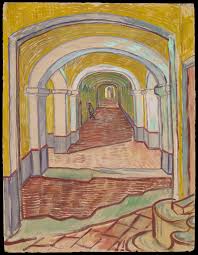Sr. Gemma Dinglasan, RGS
Sirach 3:17-18, 20, 28-29
Psalms 68:4-5, 6-7, 10-11
Luke 14:1, 7-14
Hebrews 12:18-19, 22-24
Sun, the superpower of the solar system and its central figure energizes and gives direction to the gravitational force of all the objects that orbit it still has the time to provide the plants energy needed for photosynthesis – in my own words, I call this process “greenifying” the leaves.
This Sunday’s readings are talking about humility. The first reading – Book of Sirach, says that God favors those who humbly listen with an attentive ear, and in the New Testament, Jesus states explicitly that those who humble themselves will be exalted. Reflecting on this, I immediately thought of the Sun – the main source of planet Earth’s energy. Excuse me for being too simple or too naive for using the most ordinary and common facts. Humility for me is – when the “superpower” looks at each one equally and provides with a great deal of equity. The quality of what the moon gets from the sun equates with what a bunch of bananas need to ripen, as if the sun has nothing else to do.
Humility is when we are using our talents, our abilities and all our resources for the benefit of all – equally but first characterized with equity.
Sad to say that this idea of humility is no longer working in today’s world. Everyone wants to be first, to be on top. Humility is becoming more and more a strange word, a forgotten virtue. To get ahead in life, one needs to be aggressive and get the approval of those in power. And we allknow that this is the value of the current socio-economic-political scenario of the Philippines.
Humility is not for those who want to be known but for losers. Unlike the sun that shines both to the good and the bad, today’s “superpowers” shine only to those who can be seen
neglecting those who have no voice, those who are not nice to look at, those who are a threat to their position. May we learn the lesson given by the sun- to treat each one equitably rendering justice according to natural right specifically freedom from bias or favoritism before treating each one equally where everyone starts at the same level.
To us and to those who forget the value of humility, I got this poem written by Matshona Dhliwayo:
“Before you are a champion you are an amateur.
Before you are a general you are a warrior.
Before you are a politician you are a constituent.
Before you are a president you are a citizen.
Before you are a pastor you are a parishioner.
Before you are a pope you are a priest.
Before you are a teacher you are a student.
Before you are a guru you are a disciple.
Before you are an inventor you are a scientist.
Before you are a judge you are a lawyer.
Before you are a maestro you are an apprentice.
Before you are a coach you are an athlete.
Before you are a genius you are a talent.
A humble amateur is better than a proud champion.
A humble warrior is better than a proud general.
A humble constituent is better than a proud politician.
A humble citizen is better than a proud president.
A humble parishioner is better than a proud pastor.
A humble priest is better than a proud pope.
A humble student is better than a proud teacher.
A humble disciple is better than a proud guru.
A humble scientist is better than a proud inventor.
A humble lawyer is better than a proud judge.
A humble apprentice is better than a proud expert.
A humble athlete is better than a proud coach.
A humble talent is better than a proud genius.”
The real superpower are those who humble themselves for they will be exalted…and will be repaid at the resurrection of the righteous.##



 Psalm 117
Psalm 117